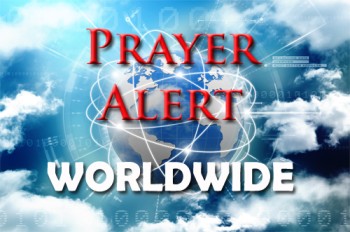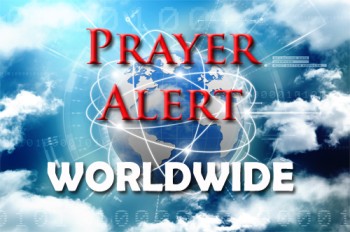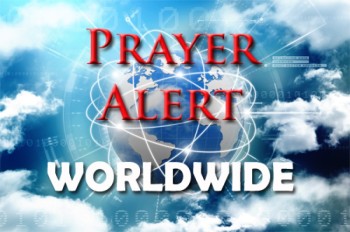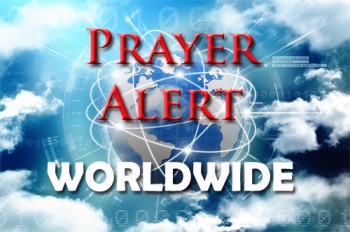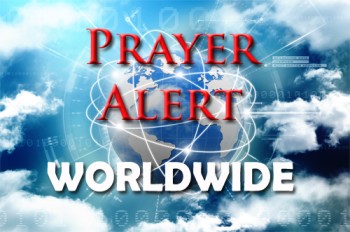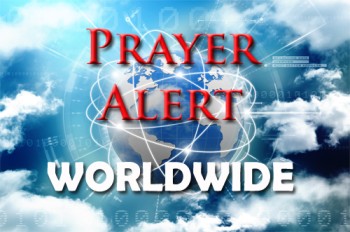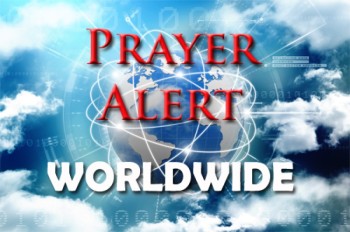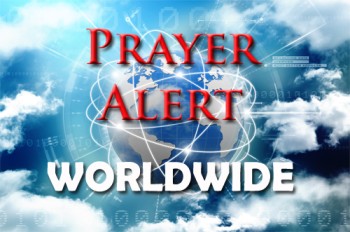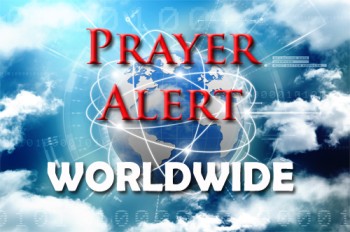Displaying items by tag: Pacific
Micronesia: tug of war
The Pacific nation of Micronesia, with 100,000 people in 607 islands, is currently caught in a political tug of war. Its location makes it a key vantage point for foreign policy. Beijing hopes to gain influence in an area of strategic importance. Yet more important than its earthly political state is the eternal state of Micronesian souls. They largely identify as Christian but cultural influences appear in their religious practice, including animism, magic, narcotics, materialism, and ancestor worship. Nominalism is high among the protestant churches and there is much cronyism among the leadership. One estimate states that 99% of the pastors in Micronesia were appointed with no theological training. The Micronesian church has many challenges, including consumerism influences from America, high delinquency and suicide among the youth, Mormon missionary activity, and the low availability of Bible translations.
Australia: domestic violence
Australia has a huge domestic violence problem and police spend more time responding to that crime than any other. Recently 648 people were charged in a four-day police blitz targeting ‘dangerous’ domestic violence offenders in New South Wales. Some 1,153 charges for domestic violence, drugs and weapons were made during the operation, and an array of illegal items, such as guns, daggers, a sword, metal knuckle dusters, and drugs were seized. During ‘Operation Amarok’ 164 of those charged were among the state's most wanted domestic violence offenders. Some had warrants out for their arrests; others had breached court-issued protection orders. The UN has said violence against women in Australia is ‘disturbingly common’, but experts say it is not notably different from other developed nations. The new strategy of targeting high risk offenders is aimed at stopping violence before it escalates to homicide.
Australia: Christian teachers for Christian schools
There is a move to change Queensland’s Anti-Discrimination Act, and the Queensland Human Rights Commission (QHRC) has recommended removing the right of Christian schools to exclusively hire Christian teachers. They released a Report containing 46 recommendations, four of which relate to religious bodies, one of these recommendations would narrow the 'genuine occupational requirements' so Christian schools cannot require all staff to be Christian. Only certain roles would meet that criterion, like the principal or chaplain. A science teacher, for example, would not be required to be a Christian. This dramatically undermines a Christian school’s ability to fulfil their ethos. Christian schools are places where students practise their faith along with teachers and staff. The idea that staff are not required to live according to the school’s religious ethos is at odds with faith-based learning. The Australian Christian Lobby is encouraging Australians to write to their MPs and the Minister for Education to express their concerns.
Canada / Australia: sexual abuse and fraud in evangelical churches
The Meeting House church in Oakville, Canada has had ‘substantiated’ sexual abuse allegations against its former leader, Bruxy Cavey. In June, he was charged with one count of sexual abuse after an internal investigation. Then the church announced two further investigations, as more accusations of sexual abuse against him and former pastor Tim Day were submitted: see In Australia the Charities and Not-for-Profits Commission launched an investigation into the Hillsong megachurch in March after a former employee alleged financial malpractice, including using tax-free money for ‘large cash gifts’ to former Hillsong global leader Brian Houston and his family. See also
Global: floods
Devastating flash floods have killed 37 people and hundreds are still missing in eastern Kentucky’s worst disaster for decades. The death toll will continue to rise. Hundreds of homes and businesses have been destroyed. People are sitting on their porches, hoping somebody is coming to save them. See In July, Sydney in Australia was hit with a month’s worth of rain in five days; people are still cleaning up three feet of swirling mud. Pakistan has 7,000+ glaciers, but rising global temperatures are causing them to melt rapidly, creating thousands of glacial lakes that might burst and release millions of cubic metres of water and debris, flooding villages in just a few hours. Worsening Indian monsoons cause Mumbai residents to commute on Venetian gondolas and inflatable dinghies. This year residents are being asked to tweet details about floods in their neighbourhoods. The data is then used to issue immediate geographically-specific flood alerts.
Churches and pride community
Seven Australian rugby league team members boycotted a championship match against Sydney Roosters on religious grounds, after being told to wear a jersey celebrating LGBTQ+ rights, replacing white stripes with rainbow bands. Reverend Palu has never met the players but he’s proud of them, saying, ‘Christianity takes a very strong root in our people’. After another team told players to wear such a jersey without consulting them, that was another flashpoint in deepening tensions between people of faith and the mainstream community over sexuality and same-sex marriage. A similar battle is happening in schools, politics and inside the churches as secular and progressive religious communities embrace sexual diversity while theological conservatives say it contradicts the Bible. Reverend Fihaki said Christianity was ‘ingrained into our culture. It’s not just a matter of going to church on Sunday, it’s part of our DNA, it’s part of our culture, it is who we are’.
Papua New Guinea: election violence
Over 24 people were killed and 3,000 displaced this month as the nation battled a surge of election violence in the runup to choosing the next prime minister: either incumbent James Marape or the PM who preceded him, Peter O’Neill. Mr Marape promises to make Papua New Guinea ‘the richest black Christian nation on earth’, while Mr O’Neill’s campaign centres on healthcare, education and job creation. The government funds church programmes that provide health and education services through the Church-State Partnership Programme. Pray for peace to come to the island and for an end to politically-motivated violence. Pray for Christianity to take deep root on the island without being diluted and mixed with traditional and animist beliefs. Pray for God to help His Church overcome the attacks from those who practise sorcery and witchcraft. Pray that people would gain a true understanding of what it means to follow Christ.
Australia: More life-threatening floods
In March floods killed 20 people and 60,000 were evacuated. On 2nd July, tens of thousands of people were again fleeing flash floods in a life-threatening emergency. By 4th July, 70 flood evacuation orders were in place across New South Wales, affecting 32,000 people, with further alerts expected as a trough of 100km/h winds and heavy rainfall moved north. Some areas had more rainfall in three days than Melbourne, Canberra and Hobart have in a year. A charity worker reported, ‘Everybody is in shock’. Boats took food and water to those stranded in upper rooms of homes. By July 7th, the week-long deluge affecting 60,000 residents in greater western Sydney continued to threaten communities farther north. Pray for the emotionally exhausted rescue workers to have the stamina and wisdom to know where they are most needed. Pray for the evacuees and those fearfully expecting evacuation orders.
Pacific: climate change a bigger threat than war
‘Machine guns and fighter jets are not our primary security concern. The single greatest threat to our very existence is climate change, not military tensions’, Fiji defence minister Inia Seruiratu told delegates at the Asian security summit in Singapore, which up to that point had focused on China-US tensions and the Ukraine war. He told delegates, ‘Cyclones have repeatedly battered Fiji and other low-lying Pacific countries. Climate change threatens our very hopes and dreams of prosperity. Waves are crashing at our doorsteps, winds are battering our homes, we are being assaulted by this enemy from many angles.’ In recent years human-induced devastating climate change has displaced thousands of people who have been inundated by floods. Floods and cyclones have also wrought economic havoc, and Pacific states have urged advanced industrialised nations to do more to combat climate change. The world is now 1.2C warmer than it was in the 19th century - mainly because of burning fossil fuels which release greenhouse gases.
Australia: election and climate change
Scott Morrison's government is criticised for its inaction on climate change. When Australia - long considered a climate policy laggard – holds an election on 21 May, the outcome could be significant for the planet's future. Still reliant on coal for most electricity, it is one of the dirtiest countries per capita, making up over 1% of global emissions with only 0.3% of the world's population. It is also a massive supplier of fossil fuels globally; when that is factored in, it accounts for 3.6% of the world's emissions. Australia is most at risk from climate change, having recently suffered severe drought, historic bushfires, successive years of record-breaking floods, and six mass bleaching events on the Great Barrier Reef. It is racing towards a future full of similar disasters. Climate policy played a role in toppling three prime ministers in a decade. Most voters want tougher climate action, but some coal towns in swing constituencies are key to winning elections.
